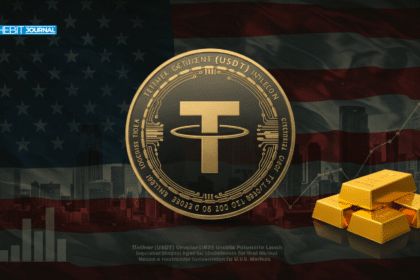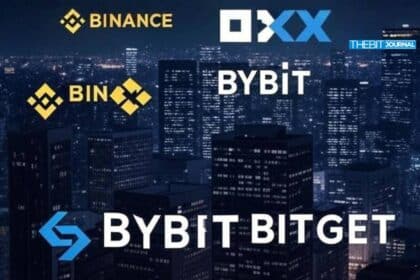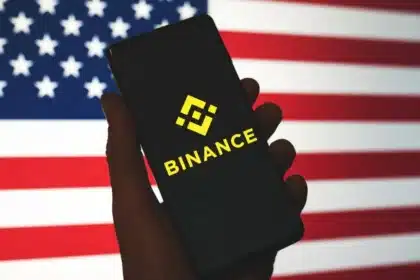Senator Elizabeth Warren has raised alarms about the Trump family stablecoin project, urging the Senate to delay a controversial digital asset bill. The bill aims to regulate stablecoins and could inadvertently facilitate potential corruption.
Warren specifically cited the Trump family’s World Liberty Financial, which has gained attention due to its involvement in a high-stakes deal with the United Arab Emirates (UAE).

Warren’s Concern Over the Trump Family Stablecoin
Warren’s concerns stem from the rapid rise of USD1, a stablecoin backed by World Liberty Financial, co-founded by Eric Trump. The Trump family stablecoin has surged to become the seventh largest globally, partly due to its connection with the UAE’s investment firm MGX. Warren believes the stablecoin’s success is tied to what she describes as a “shady” crypto deal with the UAE, which has injected significant funds into the project.

A $2 Billion Deal with UAE Investment Firm
USD1 is tied to a $2 billion deal involving MGX, a firm backed by Abu Dhabi’s sovereign wealth fund Mubadala and AI company G42. This deal has sparked concern due to the involvement of a foreign government in a U.S.-based financial project. Warren has accused the Trump family of using this deal to enrich themselves, raising questions about foreign influence in American digital assets.
The controversial GENIUS Act, which seeks to establish the first U.S. regulatory framework for stablecoins, has become a flashpoint in the Senate. The bill has passed through the Senate Banking Committee with bipartisan support, but now faces strong opposition from Senate Democrats. These Democrats argue that the bill does not adequately address risks such as money laundering and insufficient oversight of foreign-issued stablecoins.
Bipartisan Disagreement Stalls Progress
While Republicans push for the bill’s passage, key Senate Democrats have voiced concerns about its current version. Nine Democratic senators, including some who initially supported the bill, have said they will oppose it unless changes are made. These revisions must address issues like national security risks, foreign influence, and stricter oversight of foreign issuers.
Buffett’s Strategic Moves and Financial Concerns
Berkshire Hathaway’s recent actions add to the financial debate surrounding this issue. The company sold $134 billion worth of stocks in 2024 and accumulated a record $347 billion in cash reserves.
This defensive financial strategy, led by Warren Buffett, reflects growing concerns about market instability. Buffett’s cautious moves align with Warren’s concerns about financial corruption, further emphasizing the need for stronger regulation of emerging digital assets.
Trump Defends His Stablecoin Project
Despite the growing scrutiny, Donald Trump has defended the Trump family stablecoin project. He frames the push for cryptocurrency regulation as part of a geopolitical race, warning that the U.S. could fall behind China if it doesn’t embrace digital currency.
Trump insists that the project has strong public support, despite earlier opposition from the Biden administration.
The Ongoing Debate Over Crypto Regulation
The debate over the GENIUS Act has revealed deep divisions in the Senate. Warren’s objections highlight the risks she believes come with the bill, which could allow political figures like Trump to profit from financial instruments linked to foreign governments.
If passed without safeguards, she warns, the bill could enable politicians to use their position to benefit from digital asset projects like USD1 personally.
The Future of Stablecoin Regulation in the U.S.
With digital currencies’ growing prominence, the push for clear and effective regulation is intensifying. The Trump family stablecoin has brought the issue of cryptocurrency regulation into the spotlight.
Advocates argue that Trump family stablecoins, including USD1, could offer financial stability in the global market. However, concerns about foreign influence, corruption, and market manipulation continue to fuel the debate.
Conclusion
The Trump family stablecoin’s rapid rise has sparked widespread discussion about the need for robust regulation in the digital asset space. Warren’s warnings about potential corruption linked to foreign investments and the influence of the Trump family stablecoin highlight the risks associated with the unregulated growth of the crypto market. As the debate continues, the Senate remains divided on balancing innovation with financial integrity in the digital asset world.
Frequently Asked Questions (FAQ)
1- What is the Trump family stablecoin?
USD1 is a stablecoin issued by World Liberty Financial, co-founded by Eric Trump, backed by U.S. Treasuries.
2- Why is Elizabeth Warren concerned about the Trump family stablecoin?
Warren believes the Trump family’s stablecoin deal with the UAE could lead to financial corruption and foreign influence.
3- What is the GENIUS Act?
The GENIUS Act is proposed legislation to create the first regulatory framework for stablecoins in the U.S.
4- How has the Trump family’s stablecoin risen to prominence?
USD1 has gained attention due to its connection with a $2 billion investment deal involving the UAE’s MGX firm.
Appendix: Glossary of Key Terms
Stablecoin –A type of cryptocurrency pegged to a stable asset, often a fiat currency, to minimize volatility.
USD1 – The Trump family-backed stablecoin, issued by World Liberty Financial, pegged to the U.S. dollar.
GENIUS Act – Proposed U.S. legislation aimed at establishing a regulatory framework for stablecoins and digital assets.
MGX – An Emirati investment firm backed by Abu Dhabi’s sovereign wealth fund, involved in the Trump family’s stablecoin project.
Mubadala – Abu Dhabi’s sovereign wealth fund, which supports MGX and its investments.
Sovereign Wealth Fund – A state-owned investment fund that manages a nation’s surplus capital, often from natural resources.
Money Laundering – The process of concealing the origins of illegally obtained money, often through complex transactions.
References
CryptoNews- cryptonews.com
Decrypt – decrypt.co




























